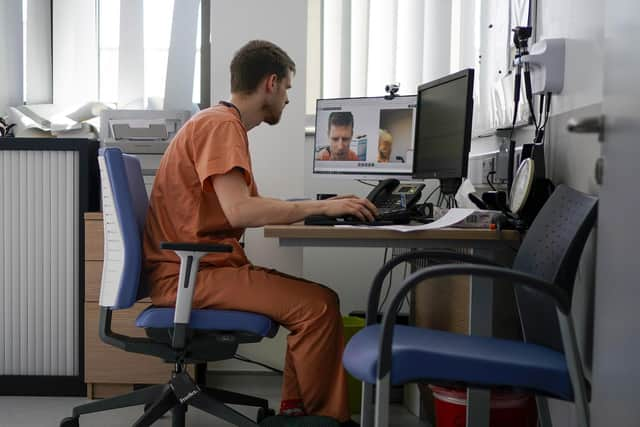How GPs can play a vital role helping victims of crime and those who end up in the justice system – Karyn McCluskey
Normal preventative medicine like cervical screening may have been held up over the last two years, suggesting possible delays in spotting early cancer that might manifest into much more serious problems in the future.
It’s amazing how much we rely on GPs who often live in the heart of our communities. If we are lucky, they have been our family doctor for many years, knowing parents, kids and extended family.
Advertisement
Hide AdAdvertisement
Hide AdThe information they accumulate about us and our communities can turn a good GP into a great one. Someone who can see behind the complaint of a painful shoulder, to the domestic abuse, to the partner with an alcohol problem, to the child with the mental health problems. A shoulder complaint can be just the entry point to a more important conversation.
I had the opportunity to speak to newly qualified and trainee GPs last Tuesday. I got to engage with them about those I see within the justice system who appear in their surgeries with significant health problems.
These are the people who often contribute to Scotland’s low life expectancy – trauma, addiction, and stress can lead to long-lasting health problems. They will have often struggled to maintain a home, will have moved GP frequently, which may have compromised their care and impacted their health.
I saw on screen a group of really tired people, who appeared late evening after long surgeries for further training. One GP described their job as the most difficult call centre role ever.


They were on the phone for much of the day, actively listening to each patient, their breathing, their words, what lay behind them and at the same time looking at their medical record, putting the two together then making a decision. Often these are patients they have never met. The risk is high, the stress huge.
All said they missed seeing patients face-to-face and the opportunity to see behind the presenting complaint. They went into family medicine in a community for the joy of connecting with patients, the chance to welcome new life, provide care for those at the end of life and everything in between.
We talked about patients who seem angry, but are hurt and frustrated, with mental health problems and a desire to be heard, and what skills are required to get past that to the problem and a solution.
I talked about the people I meet who have been victims of domestic and sexual abuse or addiction, for whom the GP is the one person they feel they can trust.
Advertisement
Hide AdAdvertisement
Hide AdBut they may be unlikely to disclose over the phone and need the face-to-face connection. For many of us, our alcohol use has increased exponentially during the last few years from the occasional glass of wine to bottles, and there can seem no way to stop. Yet speaking to a GP can be the first step to a journey of recovery.
There are good and bad in all professions and medicine is no different. But I for one, relish hearing the receptionist saying again, “the doctor will see you now”.
Karyn McCluskey is chief executive of Community Justice Scotland
